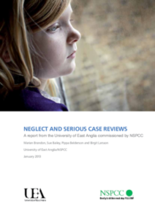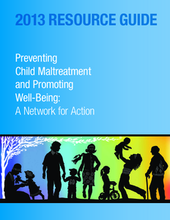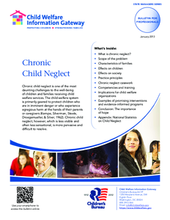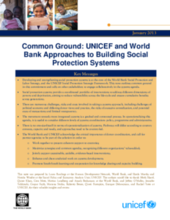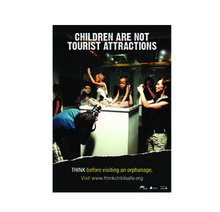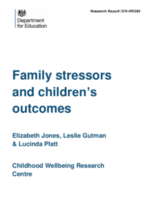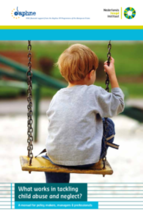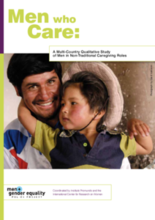Displaying 12861 - 12870 of 14579
A series of three videos on how early experiences are built into our bodies and brains.
This study provides a new contribution to our learning about neglect by exploring the circumstances in which neglect can be catastrophic and have a fatal or seriously harmful outcome for a child. It provides a systematic analysis of neglect in serious case reviews in England, between 2003 and 2011.
This Resource Guide was developed to support service providers in the US in their work with parents, caregivers, and their children to prevent child abuse and neglect and promote child and family well-being. The Resource Guide was created primarily to support community-based child abuse prevention professionals who work to prevent child maltreatment and promote well-being. However, others such as policymakers, parent educators, family support workers, health-care providers, program administrators, teachers, child care providers, mentors, and clergy also will find the resources useful.
This Child Welfare Information Gateway bulletin for professionals in the US discusses what chronic neglect is and reviews ways to work with families experiencing chronic neglect, including critical elements of successful casework practice, examples of what agencies are doing, and ways agencies can integrate child welfare approaches to chronic neglect with prevention and early intervention efforts.
This brief outlines the common ground between the World Bank and UNICEF in their commitment in developing and strengthening social protection systems and calls on other stakeholders to engage collaboratively to build such systems and expand their coverage.
The ChildSafe network has produced important information for people who might be traveling abroad and can be confronted by situations where children are in distress or at risk of being abused or harmed, including through the practice of "orphan tourism".
This new study from the Childhood Wellbeing Research Centre, an independent research center with funding from the United Kingdom Department for Education, identifies which family stress factors and parental behaviors are associated with positive and negative outcomes for children at the age of 7 and whether stressful life events experienced in childhood are associated with negative outcomes in adolescence.
This manual is the main outcome of the European Commission Daphne III programme, Prevent and Combat Child Abuse: What works? Involving regional exchanges and research from five countries (Germany, Hungary, Portugal, Sweden and the Netherlands), this manual brings together knowledge on what works in tackling child abuse. The manual suggests evidence and practice-based prevention and response strategies against child abuse and neglect, including programs and services that have been shown to be successful in strengthening family care.
The World Family Map Project is a new initiative by Child Trends to monitor the health of family life around the globe and to learn more about how family trends affect the well-being of children. Using internationally comparative data for low-, middle-, and high-income countries on key characteristics of families, including family structure, family socioeconomics, family processes, and family culture, the Map looks at trends in 45 countries, representing every region of the world.
A report examining the experiences and attitudes of men involved in non-traditional care activities and roles in Brazil, Chile, India, Mexico, and South Africa.

